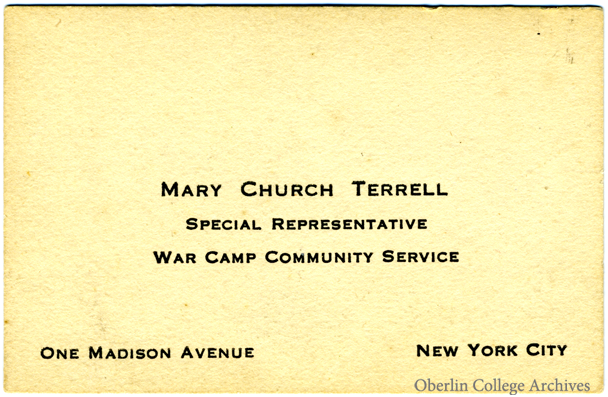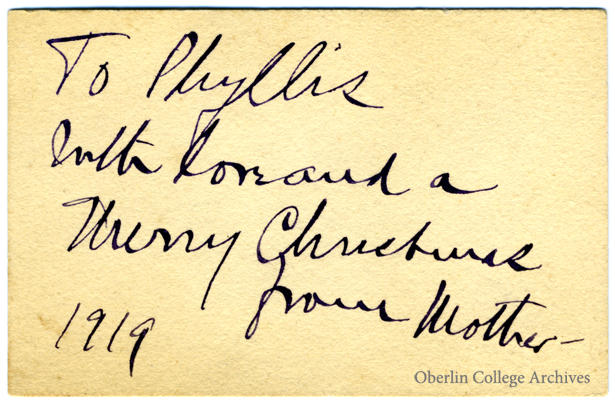Public Servant
After the war, she returned to work for the government, this time in the War Camp Community Service. In 1919 she accepted a job recruiting "colored" women to work at demobilization centers that prepared soldiers for re-entry to society.
As this business card inscribed to her daughter shows, the agency was headquartered in New York City, but Terrell traveled throughout The Deep South to interview candidates.


Terrell later encountered barriers in her attempts to secure positions with the Women's Bureau and the Children's Bureau in the Labor Department. A letter to C. Bascom Slemp, Secretary to President Calvin Coolidge, takes exception to the assumption of the department heads who had interviewed her that Terrell is unqualified. It is clear that this letter, dated December 21, 1924, is not the first exchange with Secretary Slemp. While it was surely galling for someone with Terrell's experience to be summarily dismissed, her persistence in setting the record straight regarding her qualifications could have been influenced by financial concerns, as by this time her husband had been gravely ill for several years. Terrell was also active in party politics. Her letter to Slemp was written on the letterhead of the Women’s Republican League, of which she was then the president. In 1920 she worked for the Republican National Committee as Director of Work Among Colored Women in the Eastern District, and was active in Warren G. Harding's presidential campaign - the first presidential election in which women could vote. In 1929 she took a job with Ruth Hanna McCormick's campaign for the United States Senate in Illinois. Terrell was based in Chicago where her daughter Mary and son-in-law Dr. L.A. Tancil lived, and she organized "colored" groups and spoke on the candidate's behalf.